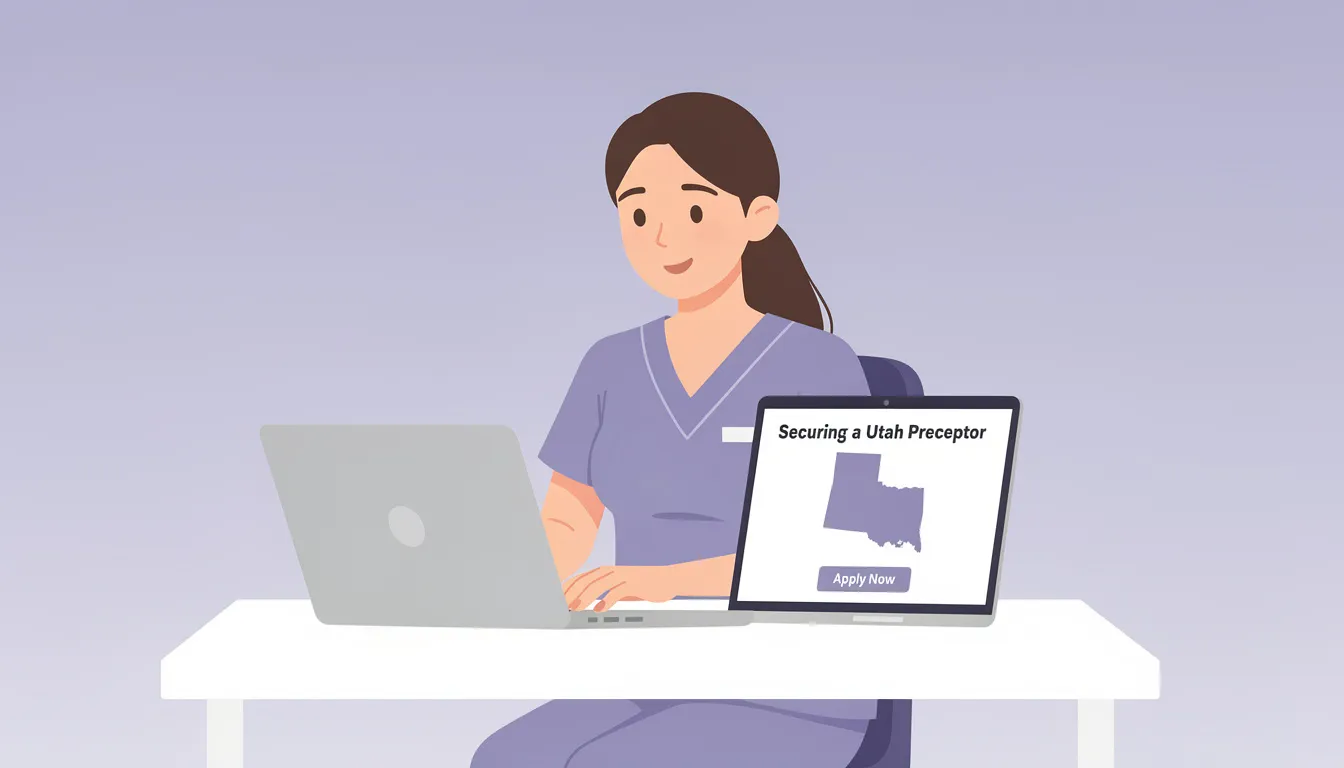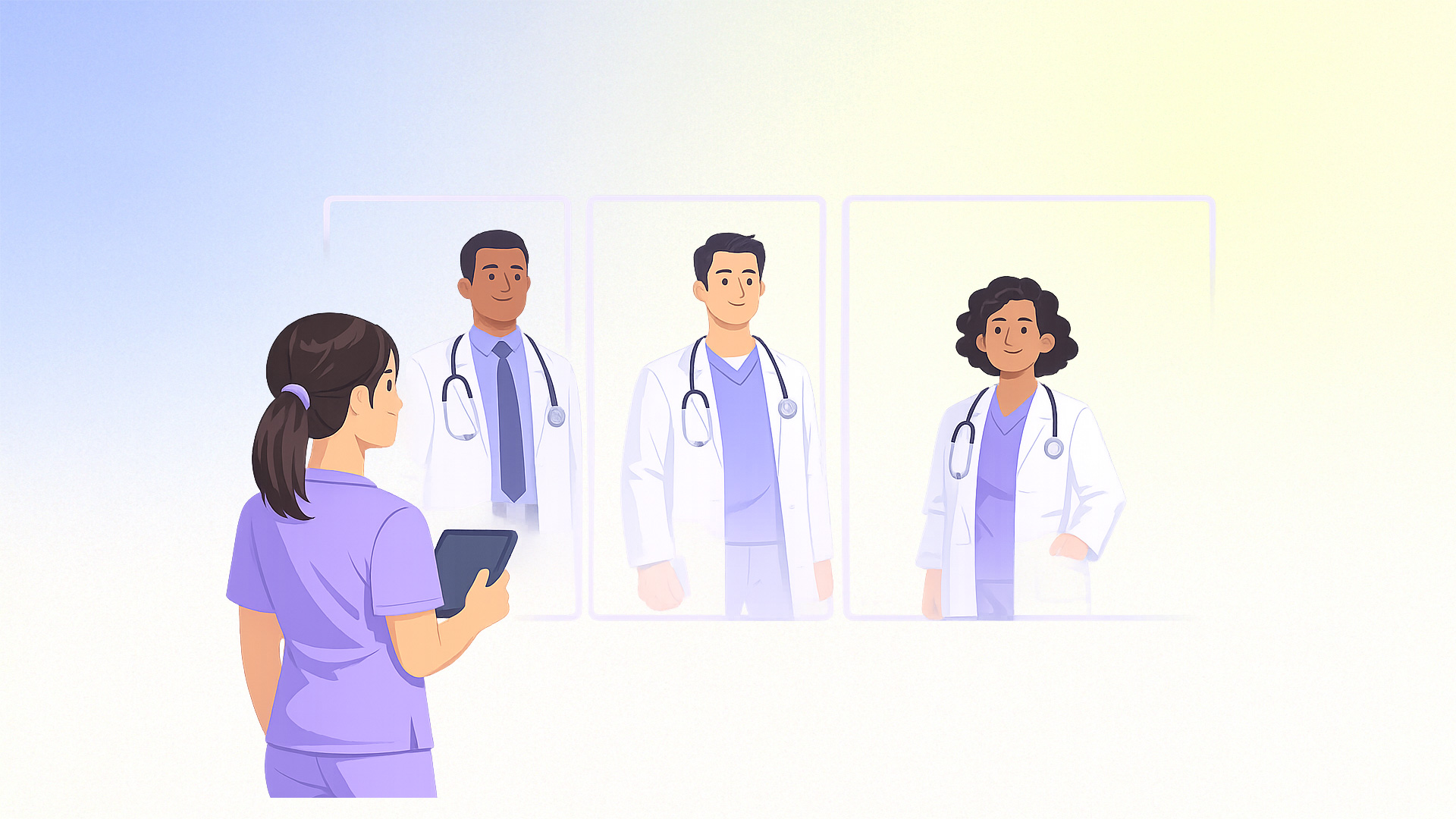Discover comprehensive resources, training opportunities, and support systems to become an effective preceptor and advance your NP career.
The nursing profession stands at a critical juncture. As healthcare demands continue to grow, the crucial role of preceptors in nursing education has never been more important. Every experienced nurse practitioner has the opportunity to serve as a mentor for the next generation of healthcare professionals entering clinical practice.
Preceptorship represents far more than supervision—it's about creating transformative learning experiences that shape competent, confident healthcare providers. When you develop your skills as a preceptor, you're actively contributing to improved patient care and student outcomes across diverse healthcare settings.
The Growing Need for Qualified Preceptors
The demand for qualified preceptors continues to outpace supply in NP education. Nurse practitioner students, physician assistants, and healthcare graduates require hands-on clinical education to transition successfully from academic learning to professional practice.
Effective preceptors possess essential qualities that demonstrate excellence in both patient care and education:
- Clinical expertise and up-to-date knowledge in their specialty area
- Strong communication skills to provide feedback and guidance
- Ability to assess learning needs and adapt teaching strategies
- Commitment to creating nurturing environments for student growth
- Leadership qualities that inspire confidence and professional development
Your Expertise Creates Lasting Impact
As an experienced nurse practitioner, your expertise positions you perfectly to address this critical need. The benefits of becoming a preceptor extend beyond personal satisfaction:
- Professional growth through mentorship and teaching experience
- Collaboration with academic faculty and healthcare colleagues
- Contribution to improvement in healthcare quality and professional standards
- Enhancement of communication and leadership skills
- Personal fulfillment from guiding future healthcare educators
The path to becoming a preceptor involves understanding requirements and accessing appropriate training resources:
- Explore program options through certifying bodies and academic institutions
- Complete required courses or certificate programs for supervisors
- Review guidelines and responsibilities for clinical education roles
- Access tools and strategies designed to support effective preceptorship
If you're ready to make a difference in nursing education, you don't have to navigate this journey alone.
Become a Preceptor with NPHub →
Join our network of dedicated preceptors and discover how NPHub provides the support, tools, and strategies you need to excel in your preceptorship role while advancing your own professional development.
Continue reading to explore comprehensive guides on effective precepting strategies, professional benefits, and the resources available to support your journey as a healthcare educator.
What Makes an Effective Preceptor and How to Get Started
Understanding the crucial role of preceptorship begins with recognizing that effective preceptors serve multiple functions beyond traditional teaching. A good preceptor operates as mentor, socializer, role model, and colleague—adapting their approach based on each student's learning needs.
Effective preceptors function as educators who address the holistic needs of developing healthcare professionals:
- Providing guidance that helps students grow as future nurse practitioners.
- Demonstrating the knowledge and professional behaviors students should emulate.
- Creating collaborative relationships that benefit both preceptors and students in their learning journey.
Essential Skills for Success
The most competent preceptors master both hard and soft skills. Hard skills involve technical competencies like proper procedures, while soft skills encompass interpersonal abilities that enhance patient care:
- Communication abilities that facilitate clear feedback and guidance.
- Assessment capabilities to evaluate student progress and outcomes.
- Mentorship qualities that build confidence and professional development.
- Bedside manner techniques that can be modeled and taught.
Nursing students and physician assistants learn most effectively when they have autonomy, clear goals, recognition of existing experience, and practical applications.
Getting Started: Requirements and Pathways
The path to becoming a preceptor involves understanding specific requirements:
- Experience: One to two years of practice as a nurse practitioner in your specialty.
- Licensing: Current licensure in the state where you plan to precept.
- Documentation: Completion of forms through certifying bodies like the American Nurses Credentialing Center.
Preceptors can work independently by contacting universities directly or use matching services like NPHub that handle administrative details. Many preceptors find that students enhance rather than hinder their practice, bringing fresh perspectives while keeping clinical knowledge current.
The Benefits of Precepting: Professional Growth and Impact
Career Advancement and Professional Growth
- Leadership experience through mentoring students and guiding their learning.
- Demonstration of commitment to the nursing profession that employers highly value.
- Development of essential communication and supervisory skills.
- Positioning for administrative, faculty, or education roles.
Continuing Education and Skill Development
- Continuing education credits that count toward certification renewal.
- Opportunities to stay current with clinical knowledge and best practice standards.
- Enhancement of teaching abilities and mentorship skills.
Personal Fulfillment and Impact
- Deep satisfaction from mentoring the next generation of nurse practitioners.
- Fresh perspectives from students participating in clinical rotations that reignite passion for nursing.
- Direct contribution to improving patient care outcomes.
- Role in shaping competent, confident healthcare professionals.
Precepting creates valuable connections with faculty, colleagues, and academic institutions, often leading to collaboration in research, education, and practice improvement initiatives that benefit the entire healthcare profession.
Comprehensive Resources for Nurse Practitioner Preceptors
- How nurses can become better patient educators
- Best places to find paid NP preceptor roles
- How to Become a Preceptor: (With or Without NPHub)
- Define Precepting: Basic Concepts to Become an Effective NP Preceptor
- The Benefits of Becoming a Nurse Practitioner Preceptor: Shaping Future Healthcare Leaders
- NP Preceptor Burnout: What to Do When You're Just Done
- Essential Guide on How to Find a Preceptor for Your Nursing Journey
- Become a Preceptor Page
Join the NPHub Preceptor Community
As the demand for qualified preceptors continues to grow, you don't have to navigate your precepting journey alone. NPHub has created a supportive network of over 2,000 active preceptors who are transforming nursing education while advancing their own careers.
Why Partner with NPHub?
NPHub streamlines the entire preceptor experience, allowing you to focus on what matters most—teaching and patient care:
- Fair compensation for your valuable contribution to nursing education.
- Hassle-free electronic paperwork system that eliminates administrative burden.
- Student matching based on your practice style and specialty area.
- Comprehensive support throughout your preceptorship journey.
Ready to Make Your Impact?
The nurse practitioner profession needs experienced practitioners like you to serve as mentors and educators. Your expertise, commitment, and willingness to teach can help address the critical nursing shortage while shaping the next generation of competent, confident nurse practitioners, as well as enhance your practice and knowledge.
Explore Preceptor Opportunities with NPHub →
Frequently Asked Questions
1. What qualifications do I need to become a nurse practitioner preceptor?
To serve as a preceptor, you typically need one to two years of experience practicing as a nurse practitioner in your specialty area, current licensure in your state, and completion of any required documentation through certifying bodies like the American Nurses Credentialing Center. Most programs also expect preceptors to demonstrate clinical expertise, strong communication skills, and a commitment to teaching and professional development.
2. How much time does precepting require, and will it impact my patient care responsibilities?
Precepting time varies by program and student learning needs, but most clinical placements involve part-time schedules that can integrate with your existing practice. Many preceptors find that students actually enhance their practice by bringing fresh perspectives and keeping clinical knowledge current. The key is establishing clear goals and strategies that support both patient care and education outcomes.
3. Do I receive continuing education credits for precepting nursing students?
Yes, many preceptor hours count toward continuing education requirements for certification renewal. Certifying bodies recognize precepting as valuable professional development, and some states accept clinical preceptor hours toward national certification and licensure renewal. This makes precepting beneficial for maintaining your credentials while contributing to nursing education.
4. How do I handle challenging situations with NP students during clinical rotations?
Mentoring students requires patience and clear communication. Focus on providing feedback that addresses specific behaviors rather than personality traits, establish clear expectations early, and maintain open dialogue about learning goals. Remember that students may be at different stages of competence, so adapt your teaching approach accordingly. Most challenges can be resolved through constructive feedback and collaboration with academic faculty when needed.
Find a preceptor who cares with NPHub
Book a rotation.webp)








.webp)


.webp)



%20(3)%20(2).svg)
.webp)